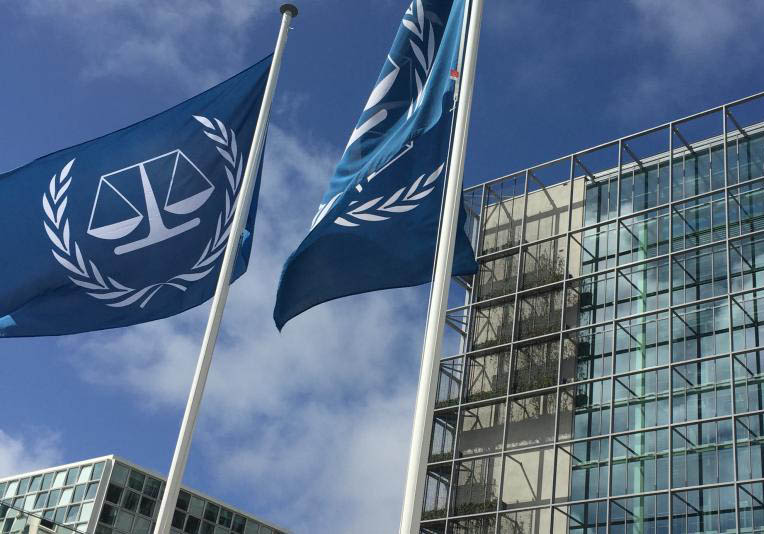
Mar 18, 2020
In amicus curiae observations submitted to the International Criminal Court (ICC) on 16 March 2020, the ICJ argued that the Court had competency to exercise its jurisdiction over the whole of the Palestinian territory, including the West Bank, East Jerusalem and Gaza.
The ICJ submitted that competing claims challenging Palestine statehood under international law and its sovereignty over the territory were without merit.
The ICJ emphasized that failure to accept jurisdiction in respect of the State of Palestine, a State Party to the Rome Statute of the ICC, would run counter to the Statute’s object and purpose of combatting impunity for serious crimes under international law.
The amicus observations were filed in response to the ICC Prosecutor’s request to the Court to rule on “the scope of the Court’s territorial jurisdiction in the situation of Palestine and to confirm that the ‘territory’ over which the Court may exercise its jurisdiction … comprises the West Bank, including East Jerusalem, and Gaza.”
“Palestine is a State under international law, satisfying recognized international law criteria for statehood, displaying and effectively exercising State authority over parts of the Palestinian territory and demonstrating capacity to enter into relations with other sovereign States and exercise treaty-making powers. Israel’s decades-long occupation of the Palestinian territory has no bearing over the ultimate question of Palestine’s sovereignty and statehood, and, thus, over the ICC’s jurisdiction,” said Said Benarbia, the ICJ’s MENA Programme Director.
The ICJ also submitted that moves by Israel to annex portions of Palestinian territory and thereby nullify the right of the Palestinian people to self-determination should not be accepted by the Court as a basis for determining Palestine’s statehood status.
The ICJ also urged the Court to reject claims that Palestine has no jurisdiction over “Area C” – which pursuant to the 1995 Oslo II Accord was placed under full Israeli control for security purposes – East Jerusalem, and Israeli citizens, and thus cannot validly delegate such jurisdiction to the Court.
“The Court can and should exercise jurisdiction over all individuals responsible for crimes under the Rome Statute committed in the Palestinian territory, irrespective of the nationality of the accused or the victims. By exercising such jurisdiction, the Court will fulfil its very raison d’être of combating impunity and holding those who bear responsibility for the most serious crimes under international law to account,” said Kate Vigneswaran, the ICJ’s MENA Programme Senior Legal Adviser.
Because the State of Palestine is a party to the Rome Statute, the ICC is entitled to exercise its jurisdiction over the serious crimes of genocide, crimes against humanity, and war crimes committed on its territory by persons of any nationality, including Israelis and Palestinians. Palestinian nationals also fall under its jurisdiction for any crimes committed anywhere in the world.
Contact:
Said Benarbia, Director, ICJ Middle East and North Africa Programme, t: +41-22-979-3817; e: said.benarbia(a)icj.org
Kate Vigneswaran, Senior Legal Adviser, ICJ Middle East and North Africa Programme, t: +31-62-489-4664; e: kate.vigneswaran(a)icj.org
Palestine-Amicus brief ICC-Advocacy-Legal submission-2020-ENG (Amicus brief, in PDF)
Palestine-ICC Amicus-News-Press releases-2020-ARA (Press release in Arabic, PDF)
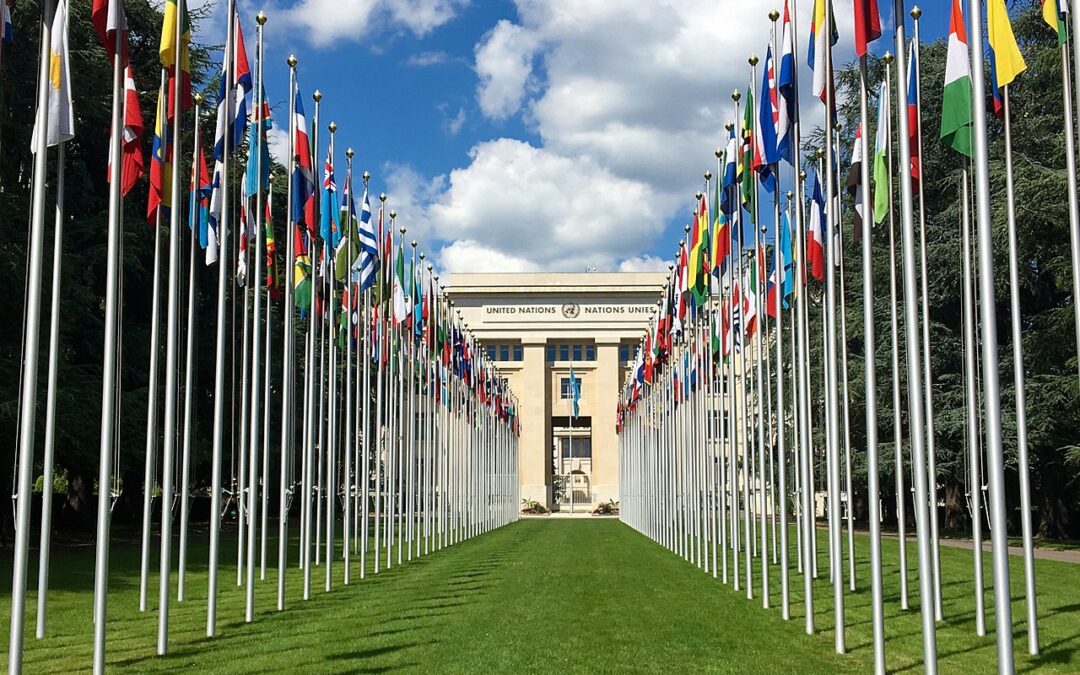
Feb 6, 2020 | Advocacy, News, Non-legal submissions
The ICJ has made a submission to the UN Human Rights Committee in advance of its forthcoming examination of Tunisia’s sixth periodic report under the International Covenant on Civil and Political Rights (ICCPR).
In its submission, the ICJ highlights a number of ongoing concerns with respect to the country’s implementation of and compliance with the provisions of the ICCPR, including in relation to:
- Tunisian authorities’ implementation of the transitional justice law, particularly on issues pertaining to criminal accountability for gross human rights violations;
- Judicial independence and accountability, particularly on issues pertaining to the development of a Judicial Code of Ethics, and
- Tunisia’s failure to establish a Constitutional Court.
The submission is relevant for the Committee’s evaluation of Tunisia’s implementation of the State’s obligations and related Covenant rights under articles 2, 3, 6, 7, 9, 14, 15, 16, 18, 19, 21, 22 and 26 of the ICCPR.
The Human Rights Committee will examine Tunisia’s sixth periodic report during its 128th session, which will be held in Geneva from 2 March to 27 March 2020.
Tunisia submitted its sixth periodic report to the Committee in June 2019 according to the approved simplified reporting procedure and in response to the list of issues identified by the UN Human Rights Committee in April 2018. Among these issues, the Committee requested Tunisia to provide information in relation to: the Constitutional and legal framework within which the Covenant is implemented; transitional justice; and the independence and impartiality of the judiciary.
Download
Tunisia-ICJ-Submission-UNHRC-Advocacy-Non-Legal-Submissions-2020-ENG (full submission, in PDF)
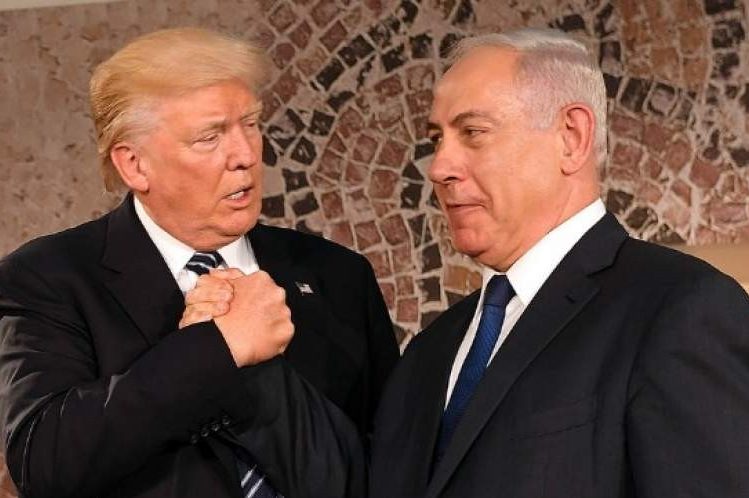
Jan 30, 2020 | News
The “Peace to Prosperity” plan proposed by the United States, and developed in the absence of any meaningful engagement with Palestinian representatives, is not a serious means to solve the conflict between Israel and Palestinian, and all actors in the international community should reject it, the ICJ said today.
As presented, the Plan would pave the way for Israel to annex large portions of the occupied West Bank, including East Jerusalem, and deny the Palestinians the internationally protected right to self-determination as well as the right to return of Palestinians. In addition, it seeks to legitimize the acquisition of land by force, all in violation of international law and the UN Charter.
On 28 January 2020, US President Donald Trump publicly announced the plan at the Whitehouse in Washington, with Israeli Prime Minister Benjamin Netanyahu at his side.
“The US plan is a political stunt that patently disregards international law and how the rights of Palestinians are recognized and protected under international law,” said Said Benarbia, the ICJ’s MENA Programme Director.
The ICJ emphasized that any claims of sovereignty by Israel over parts of the West Bank, including East Jerusalem, based on this plan would be null, void and of no effect.
The text of the US plan inaccurately asserts that Israel has “valid legal and historical claims over the West Bank” and notes that “[t]he State of Israel and the United States do not believe the State of Israel is legally bound to provide the Palestinians with 100 percent of pre-1967 territory.”
This position runs counter to numerous applicable UN Security Council Resolutions, including Resolution 242, which required Israel’s complete withdrawal from the territory occupied in 1967.
“Any settlement to the conflict between Israel and Palestine must be consistent with international law, including international human rights law and international humanitarian law,” Benarbia added. “This requires negotiations on an equal footing between the parties, optimally with broad international engagement, not simply an intervention by a single State.”
Israeli settlements are established in violation of article 49(6) of the Fourth Geneva Convention, which prohibits the Occupying Power from transferring its own population into the occupied territory.
Their eventual incorporation into Israel would amount to unlawful annexation, in contravention of the prohibition of territorial acquisition by force established by the UN Charter and international law.
The US plan posits that “Jerusalem will remain the sovereign capital of the State of Israel,” apportioning to the State of Palestine the areas of the city beyond the separation barrier. It also denies the right to return of Palestinian refugees.
Effectively making Israel’s occupation of parts of the West Bank permanent, the US plan further provides that Israel will maintain “overriding security responsibility for the State of Palestine” and that the West Bank and Gaza should be fully demilitarized.
Contact
Said Benarbia, Director of the ICJ Middle East and North Africa Programme, t: +41-22-979-3817; e: said.benarbia(a)icj.org
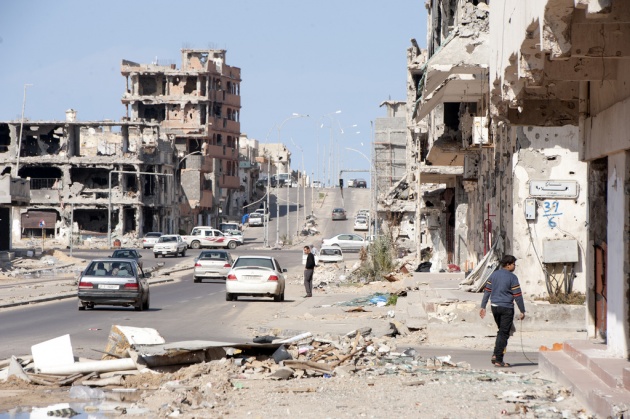
Jan 17, 2020
The 19 January 2020 Berlin Peace Conference should prioritize accountability for crimes under international law committed in Libya and ensure that any resulting Political Agreement (PA) lays the foundations for the rule of law to be established and for human rights to become firmly entrenched in Libya, the ICJ said today.
Upholding of international human rights and humanitarian law is one of the six baskets of activities provided for by the Berlin process to end the conflict in Libya.
The other baskets relate to the Libyan-led political process; the implementation of the arms embargo, security and economic reform; and, most immediately, securing a ceasefire.
Earlier this week, efforts to end nine months of armed conflict between the Government of National Accord (GNA) and the National Libyan Army (LNA) failed to materialize, with the LNA leader refusing to sign a ceasefire.
“The Berlin Conference must send an unequivocal message to all parties that impunity will not be the price of peace,” said Said Benarbia, the ICJ’s MENA Programme Director.
“Peace can only be achieved when State officials and members of armed groups responsible for past and ongoing human rights atrocities are held to account, and when the States that have systematically violated the United Nations-imposed arms embargo are also held to account,” Benarbia added.
The ICJ calls on all those involved in the Berlin process to ensure that any resulting PA include provisions on the right to truth, justice, reparation and guarantees of non-recurrence, including commitment to institutional reforms to secure accountability and victims’ rights.
The process should also support calls by civil society organizations, the UN Special Representative of the UN Secretary-General in Libya, and the Office of the High Commissioner for Human Rights for the establishment of an accountability mechanism for Libya at the 43rd session of the UN Human Rights Council.
“Accountability is a key, not an obstacle to the establishment of the rule of law in Libya,” said Kate Vigneswaran, the ICJ’s MENA Programme Senior Legal Adviser.
“The Berlin Conference should support the establishment of a Commission of Inquiry or similar mechanism with a mandate to document human rights violations and abuses in the country, identify those responsible for them, and collect and preserve evidence for use in future criminal proceedings,” she added.
In a briefing published today, the ICJ also urged all parties involved in the Berlin process to ensuring that any resulting PA provide: for armed and security forces to be subordinated to civilian authorities; for any process of integrating officials and members of armed groups in the State’s armed and security forces to be conducted through adequate vetting standards and processes; for the right of all Libyans to participate in the conduct of public affairs to be enshrined and fully complied with; for the independence and accountability of the judiciary and the Office of the General Prosecutor to be secured; and for universally recognized human rights to be protected in Libya’s Constitution and laws.
Contact
Said Benarbia, Director of the ICJ Middle East and North Africa Programme, t: +41-22-979-3817; e: said.benarbia(a)icj.org
Kate Vigneswaran, ICJ Senior Legal Adviser, t: +31624894664, e: kate.vigneswaran(a)icj.org, twitter: @KateVigneswaran
Libya-ICJ recommendations-Advocacy-Analysis brief-2020-ENG (full briefing paper, in PDF)
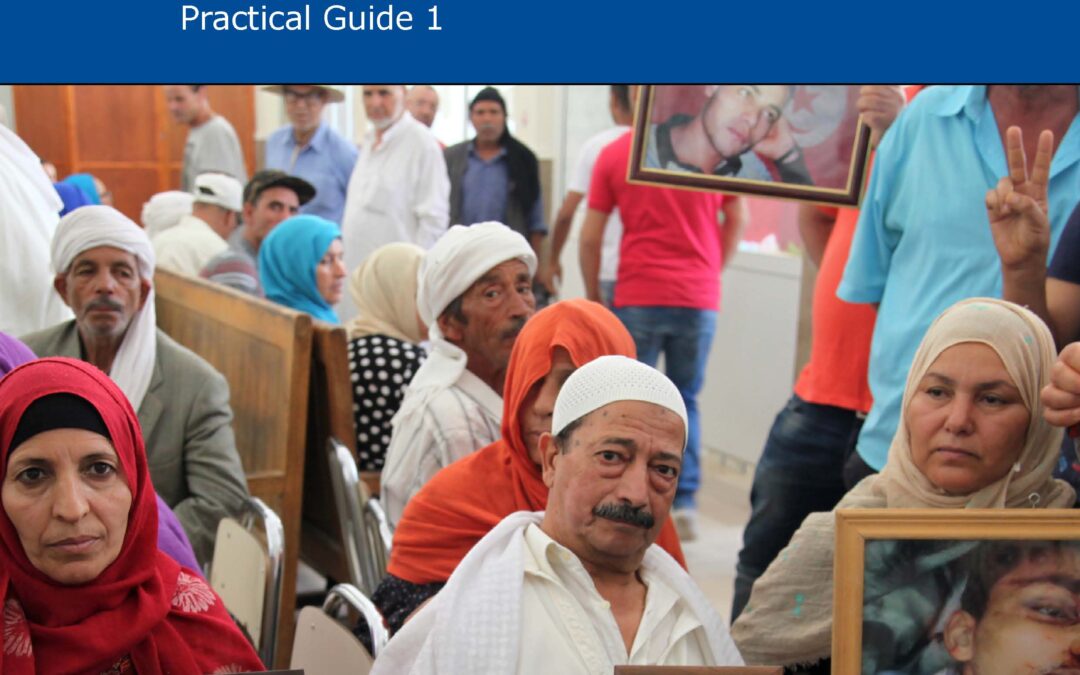
Dec 11, 2019
Today, the ICJ released Practical Guide 1 on the adjudication of crimes under Tunisian and international law, the first guide in a four-part series on accountability for crimes under international law and the Tunisian Specialized Criminal Chambers (SCC).
Practical Guide 1 addresses the application of Tunisian law governing the penalization of crimes and modes of liability, in relation to international law and standards.
The SCC were established in 2014 to adjudicate cases involving alleged “gross human rights violations” between 1955 and 2013 referred by the Truth and Dignity Commission.
“Tunisia has obligations under international law to ensure justice for victims and combat impunity for the egregious human rights violations that were committed in the past,” said Saïd Benarbia, ICJ MENA Programme Director.
“International law is directly relevant to the work of the SCC, particularly since the gross human rights violations over which the SCC have jurisdiction are either not defined in domestic law or are defined inconsistently with the definitions under international law binding Tunisia,” he added.
The Practical Guide sets out relevant international law and correlates it to related provisions of Tunisian law.
The Guide examines the principles of legality and non-retroactivity under international law and their application in the domestic system, and conducts an analysis of the definition of crimes under domestic law vis-à-vis international law for arbitrary deprivations of life, arbitrary deprivations of liberty, torture and other ill-treatment, enforced disappearance, rape and sexual assault and crimes against humanity.
Although the transitional justice framework governing the SCC gives judges some tools to remedy the gaps and inconsistencies in domestic law, legislative reform is needed to ensure Tunisia is in compliance with its obligation to penalize crimes under international law and investigate, prosecute and remedy them whenever they are committed, whether pre- or post-2011.
“Tunisian legislators gave the SCC the mandate to adjudicate gross human rights violations but haven’t remedied all the gaps and inconsistencies in the domestic law the SCC were tasked with applying,” said Valentina Cadelo, ICJ MENA Programme Associate Legal Adviser.
“Tunisian authorities must now take steps to reform the law to guarantee that all perpetrators of gross human rights violations can be held criminally responsible in any Tunisian court,” she added.
Practical Guide 1 aims to:
- Explain international law relevant to the SCC, including the application of the principles of legality and non-retroactivity, statutory limitations and crimes under international law, to guarantee justice for victims of gross human rights violations and hold perpetrators accountable, while meeting international fair trial standards.
- Correlate domestic definitions of crimes with the definitions of crimes under international law applicable at the time the alleged conduct occurred.
- Describe the requirement that penalties applied upon conviction be based in law and correspond to the gravity of the crimes.
Contact
Saïd Benarbia, Director of the ICJ Middle East and North Africa Programme, t: +41.22.979.3817, e: said.benarbia(a)icj.org
Valentina Cadelo, ICJ Associate Legal Adviser, t: +21671962287, e: valentina.cadelo(a)icj.org , twitter: @ValentinaCadelo
Download
Tunisia-Accountability series-Publications-Reports-Thematic reports-2019-ENG (full report in English, PDF)
Tunisia-Accountability series-News-2019-ARA (full story in Arabic, PDF)
Tunisia-Accountability series-Publications-Reports-Thematic reports-2019-ARA (full report in Arabic, PDF)









